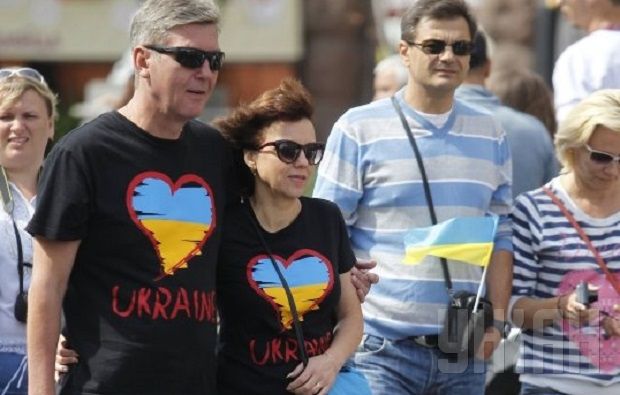
The Donbas vs. Ukraine: How to overcome the ideological split
After a year of military operations in eastern Ukraine, the Kremlin has failed to prove that it is actually a civil war that has engulfed the Donbas. However, there should be one civil battle – to end the division among Ukrainians, whether they live in Kyiv, Lviv, or Donetsk.
After the Euromaidan, a new generation has emerged in Ukraine - the generation of the Revolution of Dignity - uncompromising, tough, principled people, real heroes, ready for self-sacrifice. Obviously, all these features were not born last year, they only accumulated and crystallized in the wake of a common threat. It was the first Ukrainian battle – the war against a greedy, corrupt government - that resulted in the collapse of the Yanukovych regime.
The generation of dignity has for already a year been fighting its second battle, the war against a more numerous and more prepared external enemy, despite all the problems.
The third battle has just begun - a conventional fight with those who were so recently referred to as “our guys”, those who decided to “no longer live in Ukraine” and took part in pseudo-referendums, inviting Russia to their homes. And the outcome of this battle will determine whether Ukraine returns to the first battle or finishes the second one.
There is no Donbas without Ukraine
It's hard to be objective when your local fellow suddenly becomes an enemy, and coexisting is only seen possible after a high wall is built “at the border.” It is even more difficult to accept betrayal, if one’s relative has made a mistake ideology-wise, not thinking about possible consequences. However, most Ukrainians, despite growing irritation with the actions of some residents of the country’s east, have not turned their backs on the Donbas, have not just cut it off and forgotten it. On the contrary, many have made joint efforts to help them in any way they can - with moving internal migrants, employment, and adaptation to a new life. This spirit of volunteerism was noticed by the UNICEF Regional Director for Central and Eastern Europe Marie-Pierre Poirier, who recently visited Kyiv, Slavyansk and Kramatorsk, who said “During this trip I saw that Ukraine is helping Ukraine.”
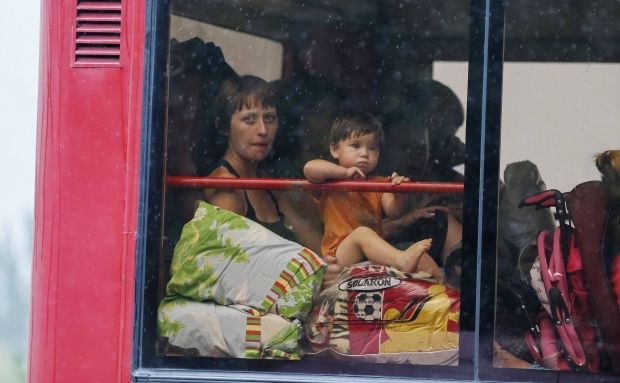
However, it should be noted that mutual understanding between the Donbas residents and people from the other regions of Ukraine is impossible without a bilateral agreement on gaining it, without desire to overcome ideological schism and division under the principle of residency. "Imagine that you come back home. To the friends whom you’ve been growing up with, to your teachers who brought you up, to the passers-by, whom you walked the same streets with... You come back, and the door of your house is opened by strangers. It seems like the faces are the same, everything is in place, but still everything seems wrong... This is the kind of parallel reality of ‘no return’ where hundreds or thousands of people are living now.”
That’s Yaroslava, a Donetsk resident, who is engaged in volunteering and taking orphans out from boarding schools located in the terrorist-occupied territories to a safer place, with no security guarantees, also risking being “tripped” by the locals. “Now imagine another thing: realizing that you no longer have the right to return home - you go the other way, where people who share your way of thinking must be living, as you think. But here you are met with a hasty, harsh appeal (although justified in some ways): ‘separate!’”
Therefore, according to the Yaroslava, the Donbas, which has itself become a kind of a cliché over the years, “will never get rid of its complex without you, those who, for whatever reason, feel “more Ukrainian.” “Separating the Donbas also means giving away these orphans. Separating the Donbas also means giving me away, giving away the memory of my friend, who was killed in the Ukrainian military; giving away those who came from Donetsk to the Maidan. That is, separating the Donbas is not giving away some territory, it’s crossing out a part of you,” she said.
In turn, the Russian-Ukrainian journalist and writer Elena Styazhkina, Doctor of Historical Sciences, professor at the Donetsk National University once said that the question is fundamentally incorrect: the Donbas can’t return to Ukraine because the Donbas, does not exist “by itself.” She believes that the country’s east can be either Ukrainian Donbas or nothing. “Civil conflict”, “turbulent east”, “separatists”, “confrontation” – all these words are incorrect. If we had an insurgent Donbas, then what was [Russian intelligence officer Igor] Girkin doing there? Girkin, aka Strelkov, was a former leader of insurgents in the Donbas believed to have been appointed by the Kremlin, reportedly a Russia’s Federal Security Service officer. He honestly said: had I not come, nothing would have happened,” she reminds.
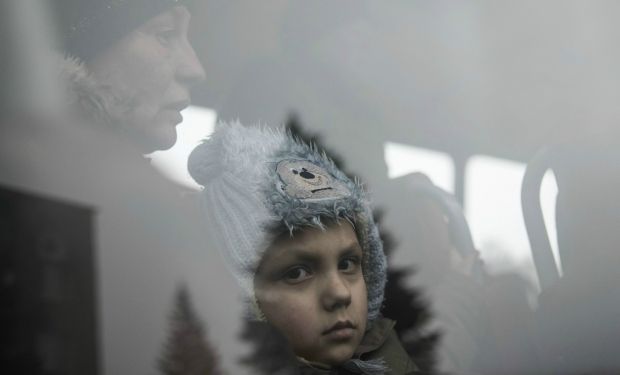
Styazhkina notes that residents of the cities of the Donbas were socially unsatisfied, but there still were mostly recruited people who were brought in Ukraine to take part in rallies for Russia.” And once the conflict had been ignited, misunderstanding among people was ignited as well.
The scientist stressed that the occupation, wherever it occurs, was orchestrated in similar scenarios, and people in war always behave the same: a minority is fighting while the majority seeks to survive. Unfortunately, survival practices also include treachery, violence, looting, and hatred. “To overcome this phenomenon in a day or even a year is impossible. It’s a daily, minutely choice, it’s hard work. For people who found themselves in a war, this work is twice as difficult. In such circumstances, it is not right to condemn them,” she said.
Distorted ‘right to self-determination’
In turn, the director of the Democratic Initiatives Fund Iryna Bekeshkina is confident that today's ideological “confrontation” among Ukrainians is a reason to finally realize that, despite the differences, they are very similar, regardless of where they live – be it the east or the west. According to the sociologist, the crisis only pushes Ukraine toward unity, although this unity is achieved at the cost of losses and re-conceptualizations. “For 24 years of independence, the issue of national unity has not been raised by any government. In Crimea all our so-called leaders only thought of their electorate and the redistribution of land near the coast. In the Donbas, a kind of feudalism dominated, which had been mostly set by the Party of Regions and partially by the Communists... No one dealt with the issues of integrating anything “Ukrainian” in these problematic areas,” she explains.
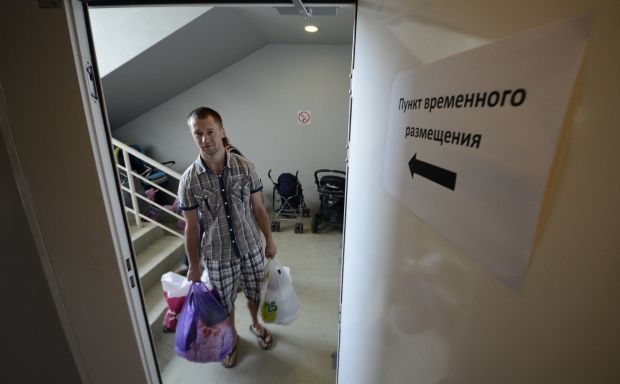
However, the consequences which we see in the east today due to such long-term attitude toward the Donbas do not allow us to talk about the fundamental differences between different regions of Ukraine, or even to point some of them out. “It's a reason to understand that there is no ideological integrity in the east. There is Odesa, Kharkiv, Dnipropetrovsk… Kharkiv is different from Dnipropetrovsk, and yet we are all much alike,” says Bekeshkina.
Olga came to Kyiv from the small town of Donetsk region. She asked not to be identified in the article as she may get in trouble – both with “our guys” and the “other guys.” The thing is that her husband has been fighting on the side of the terrorists for almost a year. And, although her family does not even have Russian roots, and the young woman almost doesn’t remember the Soviet period, as she was too young, she still explains the need for creating “republics” in eastern Ukraine with their “right to self-determination.”
“Will you write that I am a traitor?” she asked.
“What do you mean by the word ‘traitor’?” I asked back.
"That I am a wife of a separatist, that we do not support Ukraine and want to secede, that we are killing your people,” she explains.
“And is it not so?” I interrupt.
"No, it’s not. You know, in 2004, many Ukrainians came to the Maidan. There were even some among my friends. But in most cases no one asked us what we wanted or didn’t want. Since then nothing has changed, it became only worse. And now - a new Maidan, but, again, we were not asked ... So, it appears like one part [of the country] has the right to organize a revolution, and the other does not,” she says.
It is interesting that, when speaking with Olga, our differences become clear only when it comes to politics, war and the identification of the enemy. In all other respects we are representatives of one generation, roughly of similar age and desires in life.
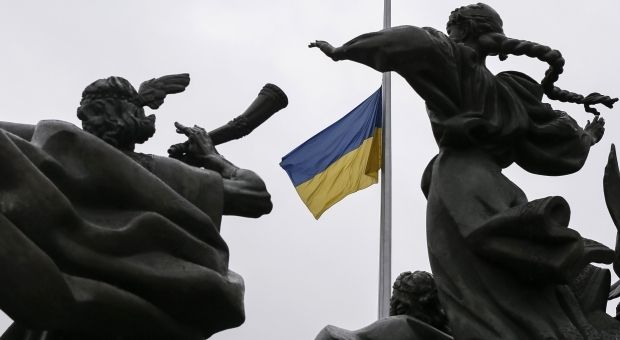
In fact, the desire to for a “better life” in a country that has failed to finish the path of successful reforms, just like some other neighboring countries sharing a common socialist past, unites all Ukraine’s regions. “In 2009, we interviewed young people about the prospects for the future. In fact, half of the respondents – and I don’t distinguish between the west, center and east – sought to leave the country, for some place where such prospects and opportunities exist. As you can see, there is no difference between Ukrainians. And it does not give any reason to talk about separating anyone. Of course, some people in the east, speaking about leaving the country, meant going to Russia, because this country is closer, many have relatives there, or jobs,” argues Bekeshkina.
In addition, the sociologist said that only 7% of the country’s population want the Donbas to be separated from Ukraine. Among the residents of the Donbas there are only 35% who want to separate from Ukraine – far from a majority. Therefore, according to the sociologist, it gives reason to believe “The Donbas is ours, whatever problems this fact brings to Ukraine’s formation.”
However, the idea that it is easier to take a few percent of sober thinking citizens from the Donbas rather than shed blood in battles has won many supporters in Ukraine. Most of them believe that people from Donetsk like Olga and her husband should be held responsible for the “war, which they sought for others.” In this context the results of a survey conducted recently by the Razumkov Center are not surprising. According to sociological data, a relative majority of respondents - 48.6% - support the idea that citizens of Ukraine who supported Russian aggression against Ukraine, the annexation of Crimea, and separatist movements in the east and south, must be deprived of Ukrainian citizenship. 33% of respondents do not support this opinion.
In the search of ideas for consolidation
Today, the conflict that has matured in Ukrainian society urges us to search for ideas that could unite the nation, definitions of what is happening with our fellow citizens and how they will coexist after the war. Head of the Laboratory of Mass and Community Psychology at the Institute of Social and Political Psychology of the National Academy of Political Science of Ukraine, Doctor of Psychology, Professor Vadym Vasyutinsky, commenting on the current situation in the country, explains that the relatively easy occupation of Crimea and Sevastopol happened due to a total rejection of pro-Ukrainian sentiments by local Russian speakers and ethnic Russians. However, the Donbas was a place where active pro-Russian minority and passive pro-Ukrainian majority collided. “That is why Russia has not won decisively and Ukraine has not managed to restore its status,” he said.
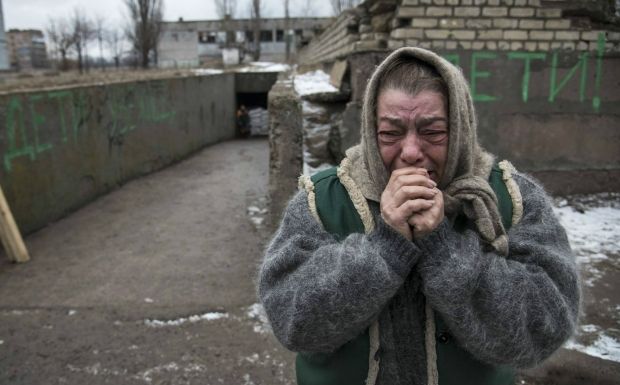
The expert says that many Ukrainians believe that the residents of the Donbas have themselves created preconditions for a lasting tragedy. “[Many citizens believe that] they are to blame: that the “real Ukrainians” are dying, because of their mentality an external enemy can manipulate one’s independence. But I also know the opposite - of young guys from western Ukraine fleeing to Poland, so as not to go to war. So the question is whether there is a need to look for someone to blame?” he said.
Actually, the main reason for efforts to find a collective guilt when some accuse the “Donetskiye” (colloquial term used to describe residents of the Donbas region”, and some blame “Banderivtsi” (the term commonly used after 1940s by Soviet, and now Russian, propaganda to identify Ukrainian nationalists, followers of Stepan Bandera – leader of the Organization of Ukrainian Nationalists) is a post-Soviet mentality that still holds a firm grip on even progressive Ukrainians. However, according to social psychologist Olha Boiko, accepting no responsibility is a sign of “totalitarian mentality,” which Ukrainians have had quite a bit of difficulty in getting rid of over many years.
“People in the east are used to being patronized by the authorities. Ask anyone who went to the ‘referendum’ if they wanted shelled houses, mortar attacks, and the deaths of their relatives? Obviously, the answer is categorical and unequivocal: they wanted separation, not war. Obviously, one should be responsible for mistakes made. And it would also be logical if the mistakes were recognized by those who opposed Ukraine’s statehood, allowed themselves to be apolitical, and were hiding from the war. But focusing on this today, raising the issue of splitting will only lead to such sentiments spreading to a larger territory... The process of reconsideration might last many years, and our task is to help,” says psychologist.
The expert’s thoughts are also shared by residents of Donetsk. “The queues for food, complaints in those queues, nostalgia for the days of Yanukovych. Fear, basements, dreams of peace. This is my Donetsk today,” says 25-year-old Alex, now resident of Lutsk.
According to him, people in eastern Ukraine are no different the people in other regions. It’s just that they fail to notice this. “Is there someone to blame? Maybe so. But what will it lead to? Nothing, except the greater gap between us,” he says, “I can hardly find any counter arguments. After all, when I moved, I myself learned to perceive Ukraine differently. But don’t believe those who say that we came from the Donbas to the other regions planning to get everything effortlessly. Also, don’t believe that we are all positive that “everyone owes the Donbas.”
Alex points out that most internal migrants from the Donetsk and Luhansk regions had moved in order to flee from war, “to live and work together with other Ukrainians.” “And all we need is a sincere will to welcome us. Being able not to turn away from each other will really be a useful skill for all Ukrainians, so that we could rebuild the country together... We must find the courage and step over prejudice,” he said.
We all have to go through this. Indeed, the “generation of dignity” will not consist of residents of Kiyiv, Lviv or Donetsk. There will be just Ukrainians.
Olga Karetnikova-Kotyagina

